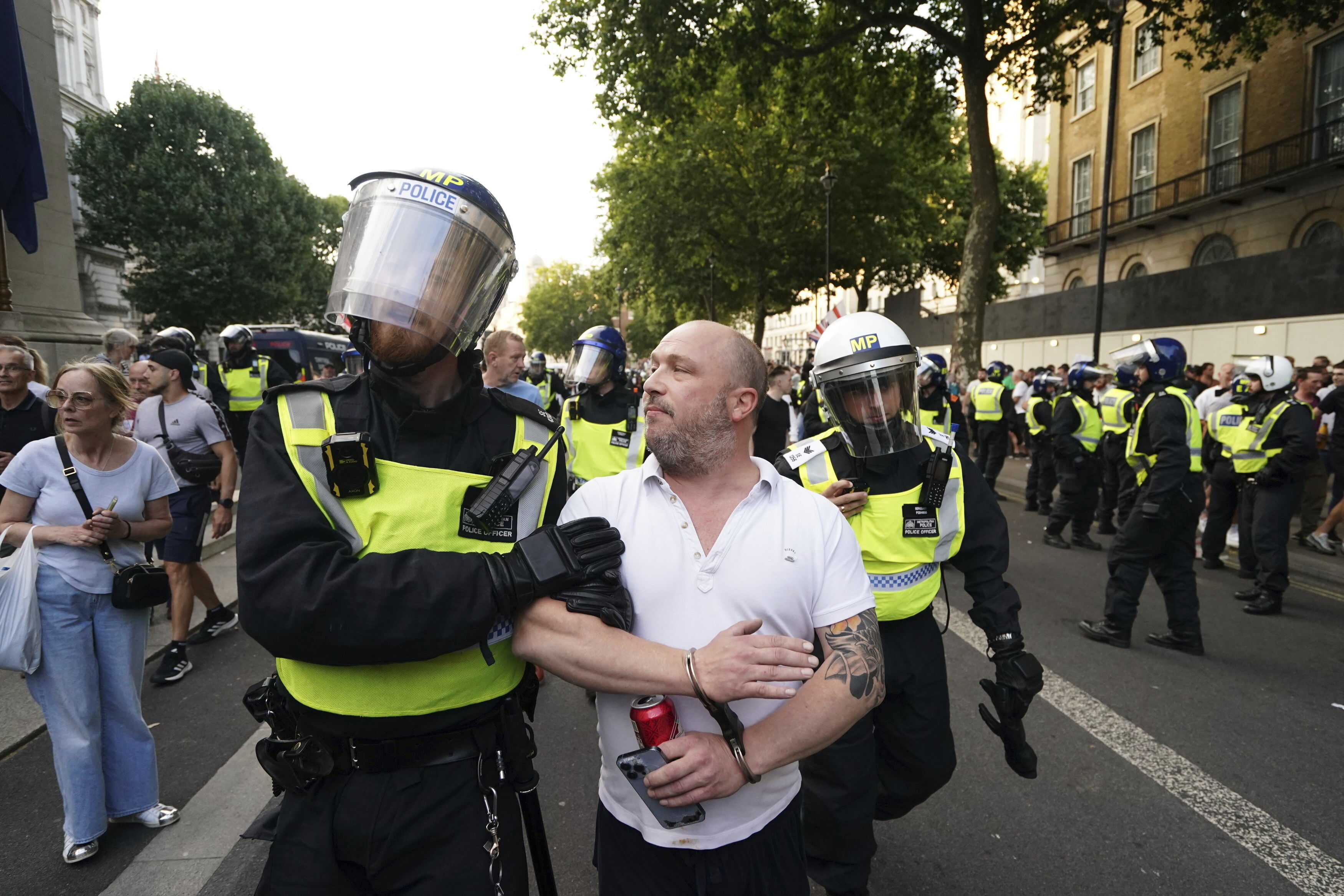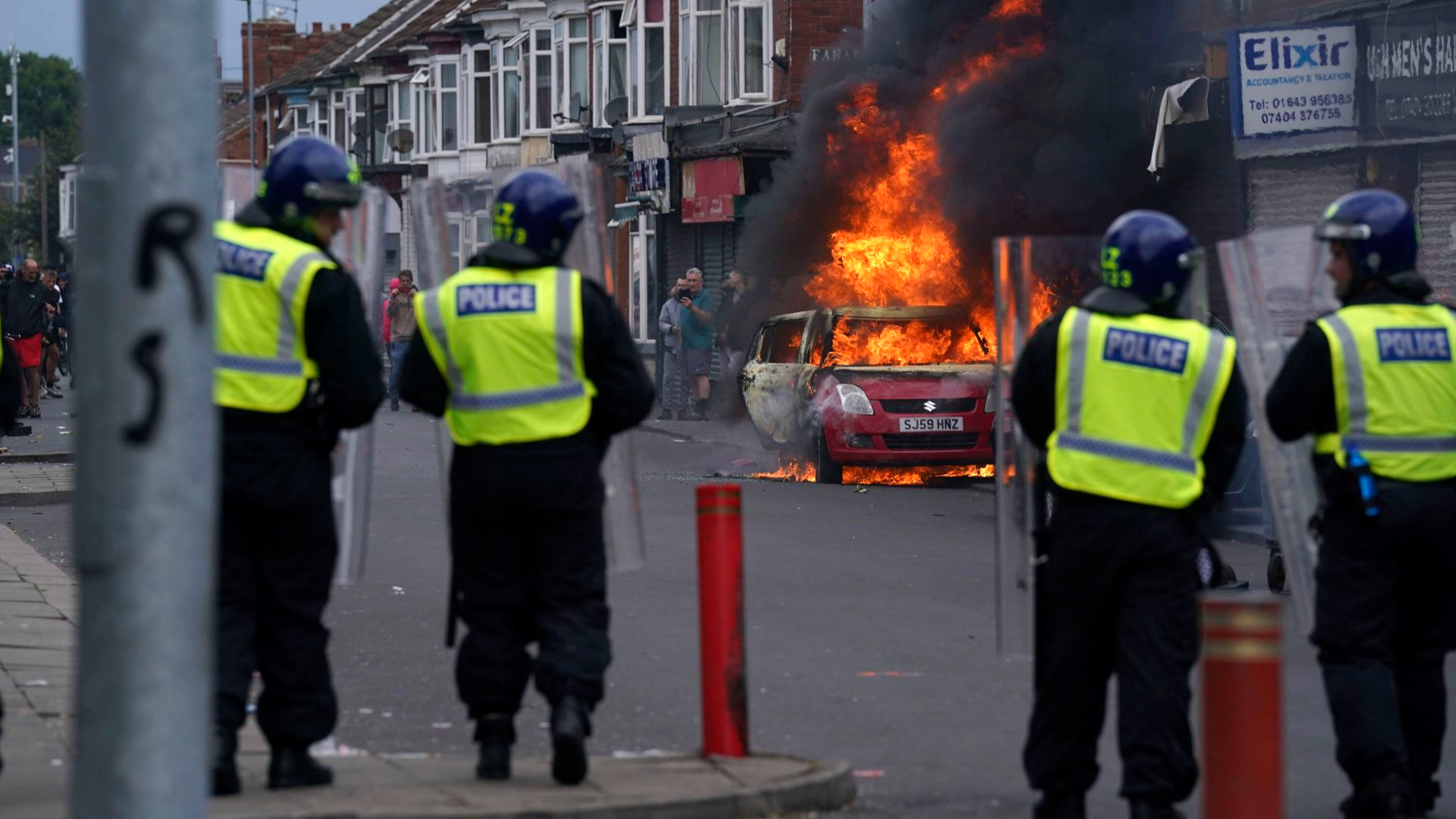
LONDON - The National Police Chiefs' Council said on Saturday that 779 people have now been arrested over rioting in the United Kingdom (UK), of whom 349 were charged.
Since a knife attack at the end of July in Southport, northwest England, which left three children dead, far-right protests have rocked the UK, resulting in police officers being injured, stores looted and hotels housing asylum-seekers stormed.
The country's authorities believed that a turning point to the unrest has appeared since Wednesday thanks to a heavy police presence in major cities and towns across the country as well as the courts' swift sentencing of rioters.
ALSO READ: UK riots halted by police, communities but country remains on alert
Due to the start of new football season and an uptick in temperature, the UK police has been bracing for a possible return of riots this weekend, but Saturday turned out to be another peaceful day except for some isolated small-scale far-right protests.
During the day, thousands of people gathered at anti-racism rallies for a "National Day of Protest" across the country in cities like London, Newcastle, Manchester and Birmingham, Belfast, Glasgow and Edinburgh.

In London, hundreds of anti-racism activists gathered outside one of Reform UK's offices to protest against the party leader Nigel Farage who has been accused of whipping up anti-immigration frenzy.
In Belfast, the number of people attending anti-racism rallies reached 15,000, according to Belfast Telegraph.
READ MORE: Anti-racism protests sweep Britain after far-right riots
UK Prime Minister Keir Starmer has cancelled his holiday plans with his family to Europe and has chosen to remain in the UK to focus on coordinating efforts to clamp down on riots.
The prime minister chaired three emergency meetings over rioting this week and has asked the country's police to remain on high alert this weekend over possible further riots.
Around 30 people have been jailed over their involvement in violent disorder or inciting racial hatred online so far, with the longest sentencing being three years. The number is expected to rise as the UK government vows to make those who break the law feel the "full force of the law."


